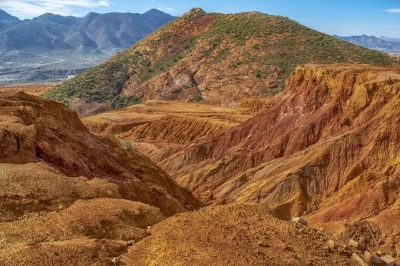
Mountain soil, especially the soil that is found in regions of high rainfall, is generally found to be acidic. This is due to the prevailing weather conditions which are often wet and cold. The rainfall leaches or drains away basic minerals like calcium, magnesium, potassium and sodium from the soil leading to acidity in the soil.
Also carbon dioxide from decomposing organic matter forms a weak organic acid that is released directly into the soil. Another reason for acidity in the soil is the burning of fossil fuels. This releases Industrial gases like sulphur dioxide into the air which mix with rain and fall back down to earth as acid rain.
Acidic soil is not suitable for farming as essential nutrients for the growth of plants like phosphorous and nitrogen are washed out of it. In other words it decreases the availability of nutrients to plants and increases toxic elements in the soil. It is generally found that if a particular region has acidic soil, it is difficult to grow non-native plants there. In these cases improving the general properties of soil by adding nutrients to it may be carried out by hill farmers. This may be in the form of compost, wood ash, straw and manure.
Picture Credit : Google



